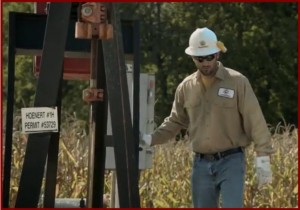The U.S. Environmental Protection Agency (EPA) and the U.S. Department of Justice announced today that CountryMark Refining and Logistics has agreed to pay a $167,000 civil penalty, perform environmental projects totaling more than $180,000, and spend $18 million on new pollution controls to resolve Clean Air Act (CAA) violations at its refinery, located in Mount Vernon, Indiana.
CountryMark will be the third refiner to put in place new measures to reduce substantially gas emissions from flaring. The company will also retrofit diesel school buses, which will reduce emissions that affect the area’s residents.
The CountryMark refinery was built in 1940 by farmers. It is who supplied with crude oil from the Illinois Basin – a 53,000 square mile depression underneath southern Illinois, southern Indiana and western Kentucky -.through a system of 500 miles of pipeline, which gathers the crude oil from thousands of oil wells owned by area farmers and landowners.
The EPA claimed that once fully implemented, the pollution controls required by the settlement will reduce emissions of harmful air pollution that can cause respiratory problems, such as asthma, and are significant contributors to acid rain, smog, and haze, by an estimated 1,000 tons or more per year.
The complaint alleged that the CountryMark made modifications to its refinery that increased emissions without first obtaining pre-construction permits and installing required pollution control equipment. The CAA requires major sources of air pollution to obtain permits before making changes that would result in a significant net emissions increase of any pollutant. The complaint also alleged CAA violations related to the flare operation, the New Source Performance Standards, and applicable requirements for leak detection and repair (LDAR).
The settlement requires new and upgraded pollution controls, more stringent emission limits, and aggressive LDAR practices to reduce emissions from refinery equipment and processing units. The settlement also requires new controls on the refinery’s flaring devices, which are used to burn-off waste gases.
The amount of pollution that flares emit depends on the total amount of waste gases sent to a flare and the efficiency at which the flare is operated when burning those gases. The settlement will ensure proper combustion efficiency for any gases that are sent to a flare and will also cap the total amount of waste gases that can be sent to a flare at the refinery. The flares requirements are part of EPA’s national effort to reduce emissions from flares at refineries, petrochemical, and chemical plants.
The flaring efficiency requirements with CountryMark are part of EPA’s national enforcement program to improve compliance among petroleum refiners and to reduce significant amounts of air pollution from refineries nationwide.
The settlement with CountryMark is the 32nd under the EPA initiative. With today’s settlement, 109 refineries operating in 32 states and territories – more than 90% of the total refining capacity in the United States – are under judicially enforceable agreements to reduce significantly emissions of pollutants. As a result of the settlement agreements, refiners have agreed to invest more than $6 billion in new pollution controls designed to reduce emissions of sulfur dioxide, nitrogen oxides, and other pollutants by more than 360,000 tons per year.


